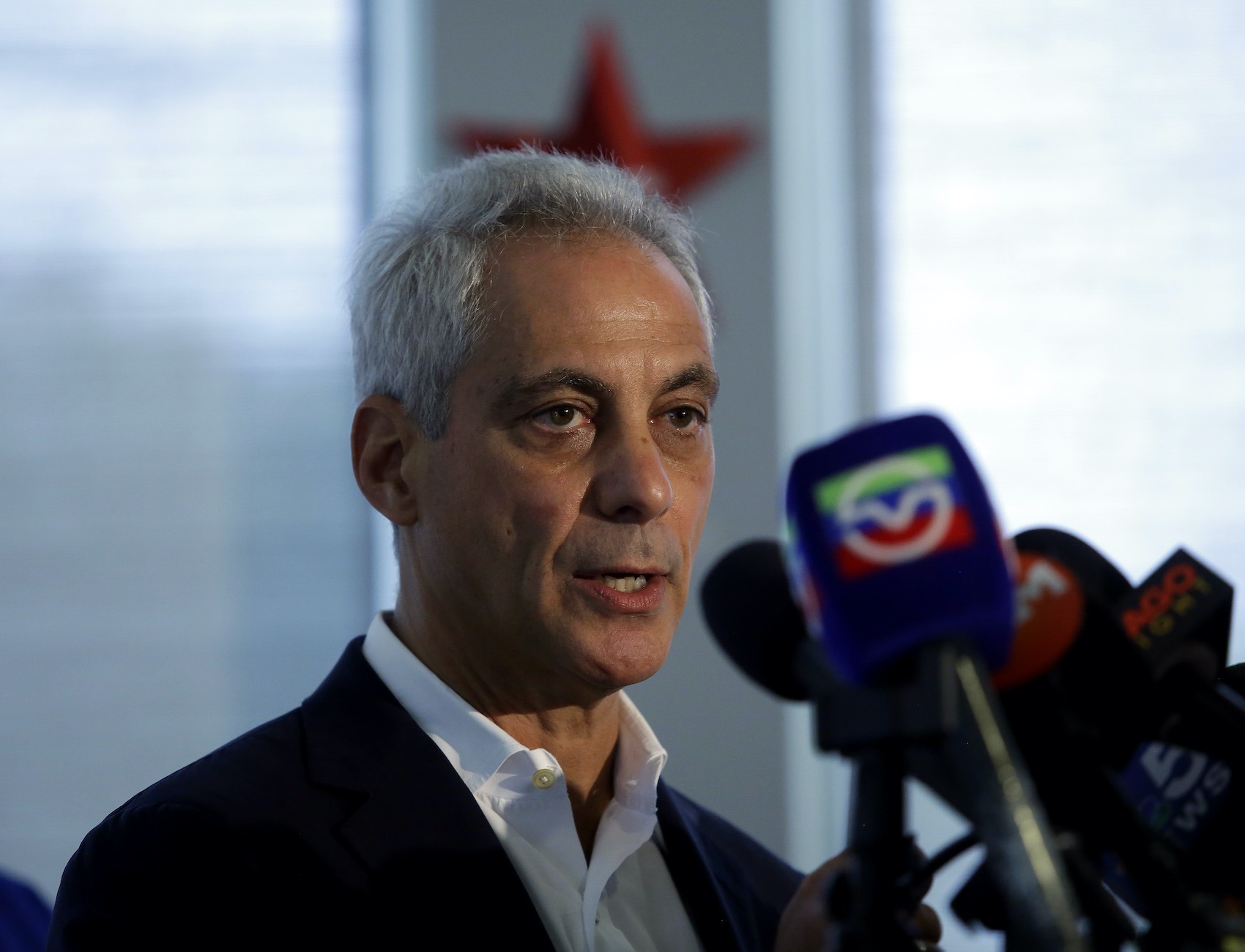A Man Shot by Chicago Police Is Receiving $10 Million From the City. In 2013, Rahm Emanuel Praised the Officers Responsible.
The former mayor issued a city resolution honoring officers for their ‘bravery’ in a shooting that paralyzed Tarance Etheredge, who will receive a payout from a civil rights lawsuit.

On Wednesday, the Chicago City Council voted to approve a $10 million payment to settle a state civil rights lawsuit brought by Tarance Etheredge III, whom police shot in the back and paralyzed from the waist down.
Etheredge’s lifetime costs, including medical care, from the shooting are estimated to be between $24 million and more than $27 million, according to medical experts who spoke at a city finance committee hearing.
Months after the 2012 shooting, then Mayor Rahm Emanuel praised the officers involved—Pedro Guzman, Robert McGee, Mark Heinzel, and Joseph Perez—for their “display of bravery in the face of serious injury or death,” according to a city resolution dated May 8, 2013. The resolution has not been previously reported. Emanuel did not respond to The Appeal’s request for comment.
The resolution parrots the initial police account of the incident, stating that Guzman and McGee saw “a man” who was “perhaps carrying a firearm,” identified themselves to him, and gave chase when the man ran.
The resolution describes a man crouching in a shooting position and preparing to fire at officers, thus prompting Heinzel to shoot. Etheredge was carrying a gun at the time but claims he never took the gun out of his pocket. A gun found near him after he was shot did not have his fingerprints on it.
“These Police Officers responded to a perilous situation without hesitation and showed the highest level of professionalism, which led to a dangerous man being arrested, and his weapon recovered, without injury to any innocent person,” the resolution states.
According to Etheredge’s lawsuit, however, neither McGee or Guzman identified themselves as police when they approached him on his way to work the morning of Dec. 17, 2012. Both officers were in plainclothes and driving an unmarked patrol car. McGee got out of the car and yelled “come here” to Etheredge, according to the lawsuit. Etheredge ran away because he feared for his safety, the lawsuit states. He stopped running when he realized it was the police who were chasing him. Heinzel then shot Etheredge in the back, puncturing his lung.
The shooting was unprovoked, the lawsuit says, and there had been “no physical contact, altercation, reasonable threat, or injury” to an officer beforehand.
Emanuel, who served as mayor from 2011 to 2019, was a rising star in Democratic politics when he took office. He had previously served as chief of staff for President Barack Obama. But Emanuel’s tenure as mayor was plagued with scandal and allegations of corruption, including being complicit in the cover-up of the 2014 police killing of Laquan McDonald, who was shot 16 times by former Officer Jason Van Dyke.
Police said McDonald attempted to stab Van Dyke prior to the shooting. Dashboard camera video from the incident—which the city spent roughly a year attempting to prevent from being released—showed that was a lie.
Van Dyke was arrested and ultimately convicted of second-degree murder for killing McDonald, who was 17. Several other officers were also charged with crimes or fired.
In 2015, Emanuel issued an apology to the City Council for McDonald’s shooting and for the city’s misconduct.
“I am the mayor,” he said. “As I said the other day, I own it. I take responsibility for what happened because it happened on my watch. … If we are going to fix it I want you to understand it’s my responsibility.”
During Emanuel’s tenure as mayor, the city spent more than $540 million to deal with allegations of police misconduct, according to the Chicago Reporter.
In May 2019, The Atlantic hired Emanuel as a contributing editor. His time on the masthead was short-lived: Black staffers wrote a letter to the editor-in-chief and others, objecting to Emanuel’s role, in large part because of his handling of McDonald’s murder. Emanuel was removed as a contributing editor and has not published anything with The Atlantic since.
